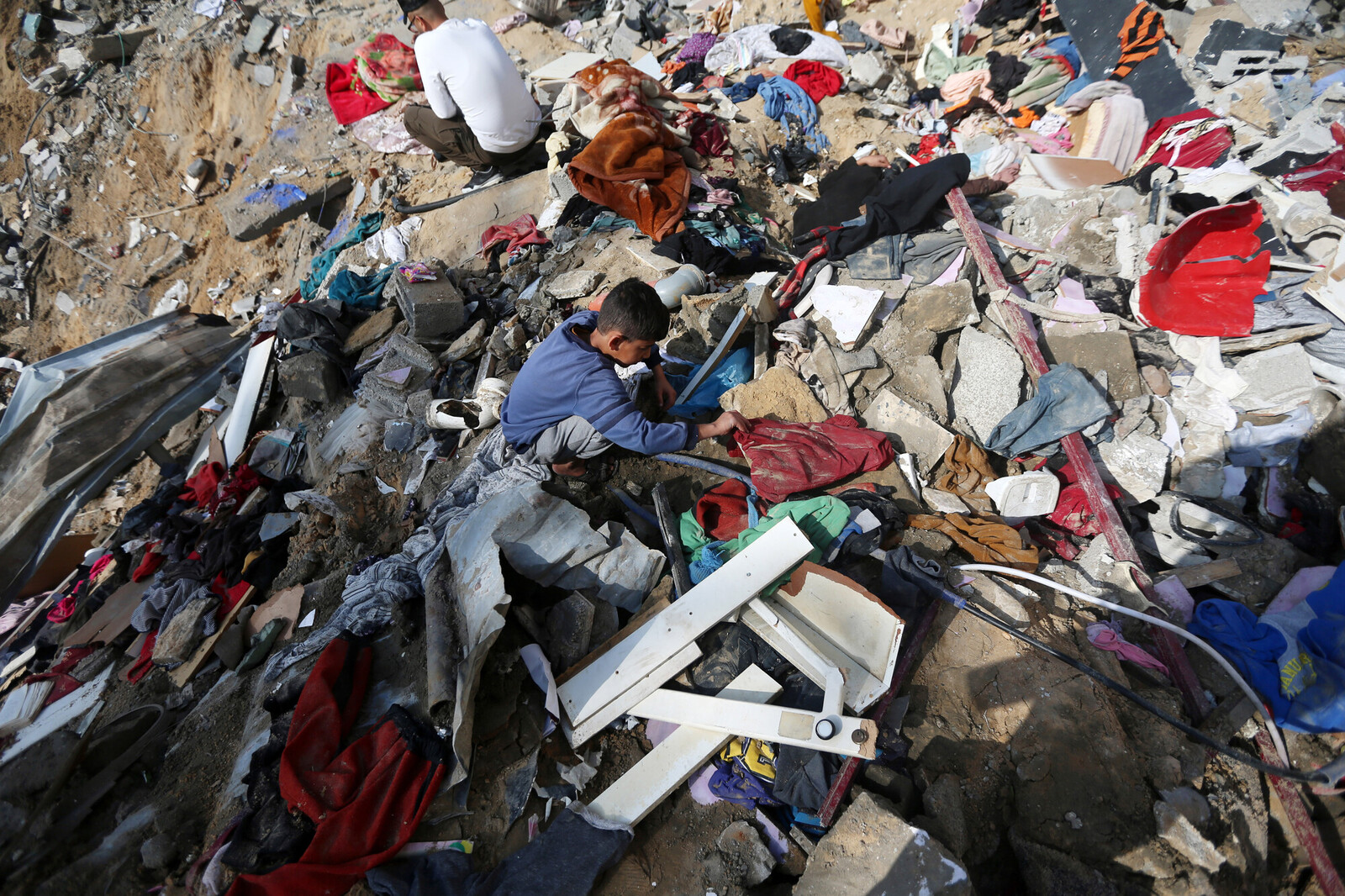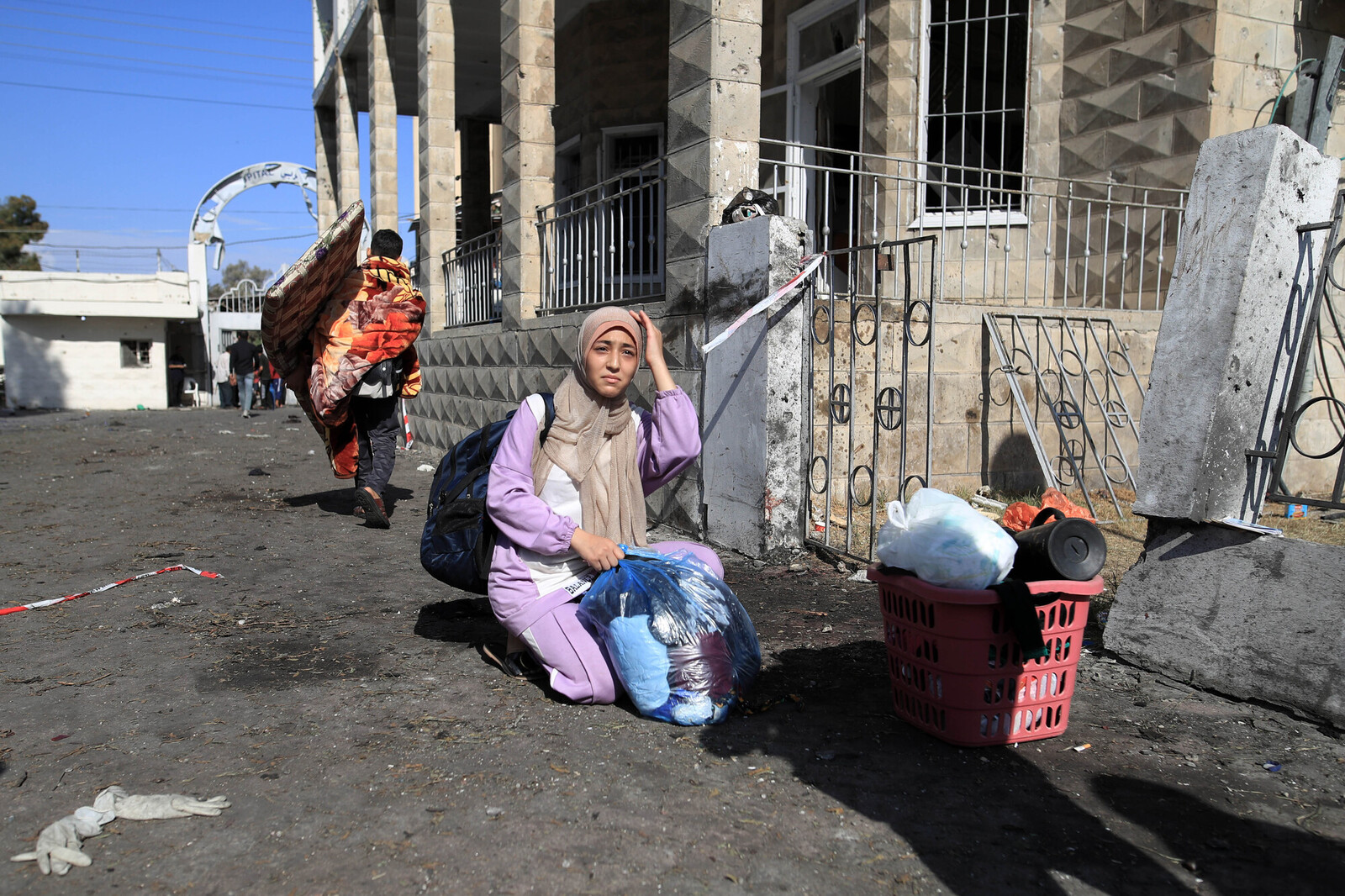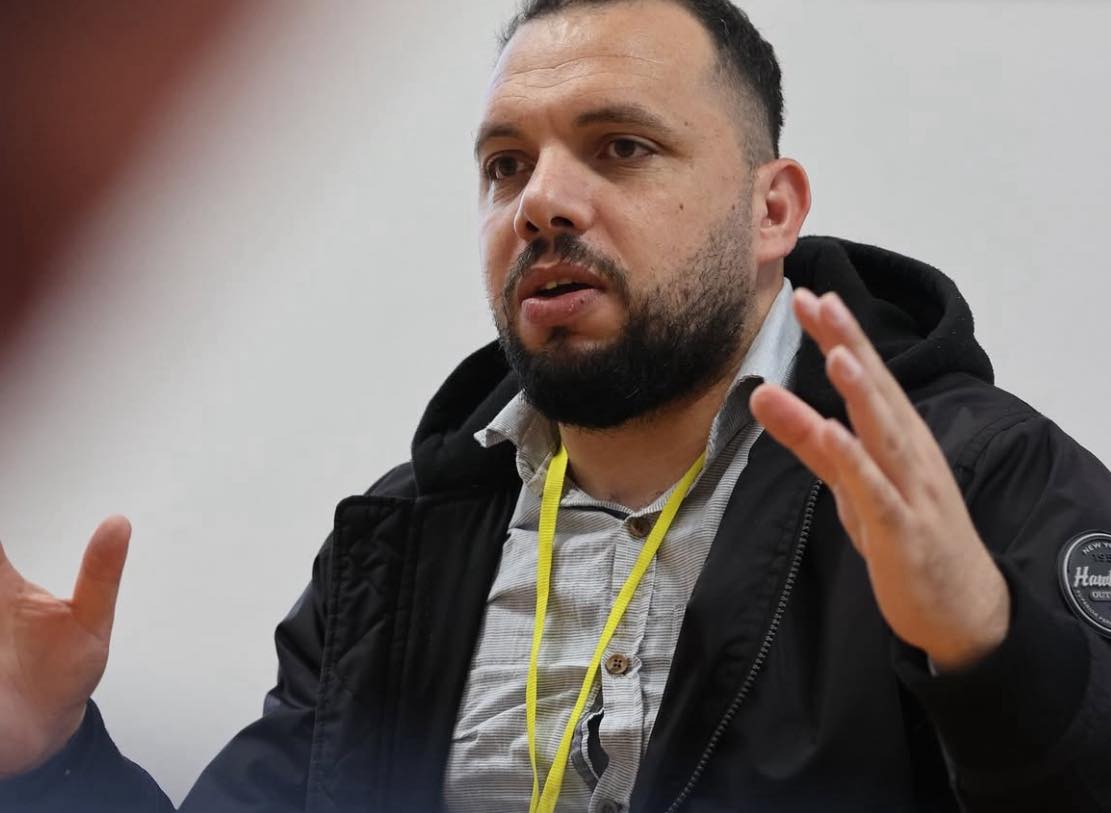
Photo: Mohammed Zaanoun
Ahmad Ghazal is a friend of mine from the Al-Daraj neighborhood in Gaza City, which Israel calls “the north” today. His wife was pregnant when she and her mother were displaced to the south of Gaza. Ahmad, however, stayed behind in Gaza City. His wife gave birth to their first child in Deir Al-Balah, away from him. Their child Eman—for whom Ahmad and wife had longed for years—turned seven months old on Nov. 7. But still, her father has not been able to meet her, even though she is only 10 miles away.
Since Oct. 7, 2023, Israel has been implementing plans and building military roads to transform Gaza beyond recognition. This is the most dramatic change to Gaza’s landscape since the Nakba of 1948 and even the occupation of Gaza in 1967. Palestinians in Gaza have begun to use Israeli terms to refer to Gaza. Gaza—which was divided into four distinct regions (the North, Gaza City, the Central Area, and the South)—is now only referred to as the “North” and the “South.” The new reality existed after Israel divided Gaza into parts and pushed one million Palestinian out of the north of Gaza and Gaza City. Palestinians deal with facts on the ground, and therefore they use these terms that reflect the new reality created by Israel in Gaza today.
Israel’s displacement of Palestinians has not only created physical separation but has also left some feeling guilty for leaving their homes on the orders of the Israeli military. I see the human impact of this division in my cousin, Hatem, a father of four in his early 40s. In 2014, Hatem had survived an Israeli bombing by jumping from the second floor of their house in Al-Nuseirat. But in October 2023, Hatem was separated from his family when he worked as a nurse in northern Gaza and was unable to return to Al-Nuseirat. Just two weeks ago, Israel killed Hatem’s son Muhannad, 22, along with four of his nephews and his brother-in-law. And just a few days ago, Hatem was kidnapped by the Israeli military from Kemal Edwan Hospital along with 20 other medical workers. Now, his family’s only hope is that the Israeli military will release him in southern Gaza, allowing him to reunite with his family in central Gaza.
It is heartbreaking to see what Palestinians in Gaza are hoping for these days. The conversation in Gaza is no longer about lifting Israel’s 17-year siege on Gaza, but about ending the genocide taking place over the past year and rebuilding what has been destroyed.
Today, Palestinians in Gaza speak of their dreams of simply getting a solid tent to protect them from Gaza's winter, which has brought more wind and rain this year. Palestinians also want enough food, water, and medicine, as Israel’s total blockade has barred desperately needed humanitarian aid from entering Gaza.
After a year of bombings, the constant feeling that anyone could be the next target, and having to move from one place to another, Palestinians have lost their patience. They are exhausted and face overcrowding, a constant lack of privacy, and skyrocketing prices. There are more social conflicts and problems.
Israel is only allowing a limited number of trucks into the Gaza Strip and has let almost no aid into the northern Gaza Strip for weeks in order to push people out of the territory. Through these actions, it is trying to achieve two goals: 1. To ensure that people run out of money and thus become more desperate, and 2. To have more control over the financial liquidity in Gaza, according to the decisions of Israel's Finance Minister Bezalel Yoel Smotrich.
Gaza is going through a nightmare it has never before experienced. The people of Gaza feel so abandoned that they are numb to news of new horrific acts of violence—like Israel’s killing of 61 Palestinians in Jabaliya or the killing of 73 Palestinians from the Abu Nasser family in Beit Lahia on Oct. 28. Israel continues to make one statement after another with complete impunity. That includes passing a law declaring U.N. Relief and Works Agency (UNRWA)—the main provider of aid in Gaza—a terrorist organization. And its declaration of U.N. Secretary-General António Guterres as persona non grata.
The people of Gaza have lost hope in the possibility of the world acting to stop the genocide and hold Israel accountable. Almost every day, Israel targets shelters in Gaza, deepening the sense among Palestinians that no place in Gaza is safe.
Despite the feeling of hopelessness and helplessness among people in Gaza, grassroots organizations and civil society must increase pressure on their governments worldwide to stop the war in Gaza. As Israel moves to outlaw UNRWA, it is of the utmost importance that we continue to support Gaza in every way possible. More pressure needs to be put on the International Court of Justice to bring war criminals involved in the genocide in Gaza to justice.
In addition, it is time to pressure the U.S. government to stop sending military aid to Israel. After all, Israel has been able to commit genocide in Gaza thanks to U.S. military aid and political and diplomatic support. Even a letter from Secretary of Defense Austin and Secretary of State Blinken meant nothing to Israeli Prime Minister Netanyahu, who continues to expel Palestinians from the north and starve them throughout all of Gaza.
Palestinians in Gaza are exhausted after a year of genocide. Every day that passes means more death and destruction in Gaza. The U.S. and international community must help achieve an immediate and permanent cease-fire, demand accountability, and begin the process toward recovery.
For the over 2 million Palestinians in Gaza, every day is a struggle for survival—seeking help, searching for water and food, and facing death. The world must act swiftly to end the slow death that has unfolded for over a year.

